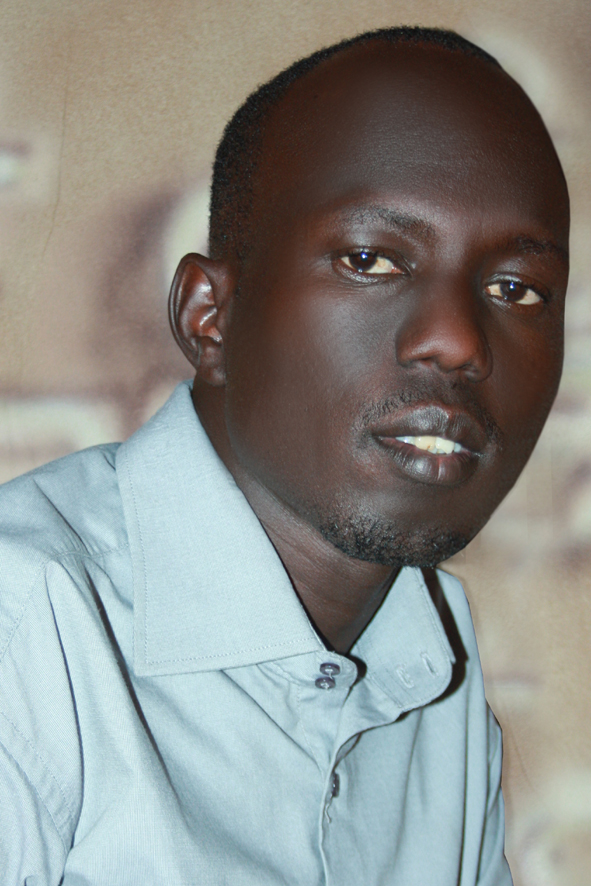Challenging the youth that they don’t know how to work because they are sipping tea and playing cards and dominos under trees of juba is not a solution. One leader once shouted in the church. “You youth don‘t know how to work, look at how foreigners are doing everything for us. You only play cards under the tress”. This may lead to xenophobia, something that will endanger our relationship with our neighbors and international community. The only thing the government should do is to put policies that will favor citizens. When foreigners realize that, they will quit some businesses because they will not make profit.”
Juba is the fastest growing city in the world. This is according to the reports of Multi-Donor Trust Fund in 2008. But how many of its citizens can afford one meal in a day? This question begins to worry Juba’s residents as independence celebration mood fades away.
It looks self explanatory when one sees how better the city is compared to 2005 when the new government of southern Sudan started operating in this town. It was actually a bush as the
When we came here in the year 2005,” Information Minister Dr Baraba Marial told the BBC during independence rehearsals, “there were only fifteen cars in Juba and they were security cars; but today you can see traffic jam, more roads, tarmac.” Perfectly said, it was as if Juba is not the second largest city in Sudan because it had no infrastructure at all.
In 2006 Juba developed with the speed New York and Paris could have not experienced during their time. Business boomed as foreigners flocked in and Juba became the most expensive and popular city in Africa. It was ranked after Tokyo and Paris in November 2007 as the third most expensive city in the world. In fact, according to one report from one of the donors’ trust funds in 2008, Juba was the fastest growing city in the world.
Rampant development was seen as most expensive cars started running on the road, dollars in sacks were seen on road side from local traders for exchange. This made Juba the most preferred city in the region. If you visit Dar es salaam, Nairobi, Kampala or Kigali, you would see how willing the citizens of those respective cities would wish to live in Juba.
Unfortunately, this is not the case with juba’s residents who are witnessing a lot of growth in the city, but are not beneficiaries of that growth. The average person in Juba is living at 40 SDG, the equivalent of 18 US Dollars per a day — renting and medical not included. The research shows that 90 percent of Juba’s residents are living below one dollar a day and over 99 percent are unemployed.
The influx of foreigners to juba in 2007 when economy was in booming stage let land owners to lease land owners to lease land out to foreigners at, sometimes cheap terms. There were no policies put in place by government. Foreign companies started building hotels and imported everything including the cooks. These barred the locals from benefits such as jobs in the hotels and manual work in the constructions sites – although in many instances the locals refused such menial jobs.
It is hard to own land; one would buy a plot without structure at 30,000 SDG outside town and up to 100,000 SDG in town putting the poor populace out of reach. Only few citizens own houses and cars. If this continues then it will lead to two tribes, “the haves and the don’ts” something our leaders should take care of if we are to achieve the equality that we fought for.
Private policemen earn 340 SDG per a month without food and renting allowances, if you divide it with 40 SDG it would be eight days only. Fresh graduates earn 860 SDG per a month which only carter for 21 days, if one has to live an average life of hand to mouth without dependants, medical and other needs of human beings.
Most food stuffs are imported from neighboring countries of Kenya and Uganda even things that we can produce like sugar cane and matoke. It makes it more expensive for locals. Traders hike the prices to make profit making the living standard of the town so high.
Windhoek in Namibia was once a victim like what juba has fallen into today. When they got independence, they borrowed policies of capitalism from European models of economics. They allowed Europeans to do all projects other than giving citizens chance. It led to development of houses that citizens could not afford to rent. In the fishing industry, fish were sold with prices that citizens could not afford. Leaders of Juba have failed to see that; instead they make utterances that are not reasonable.
Challenging the youth that they don’t know how to work because they are sipping tea and playing cards and dominos under trees of juba is not a solution. One leader shouted one time in the church. “You youth don‘t know how to work, look at how foreigners are doing everything for us. You only play cards under the tress”
This may lead to xenophobia, something that will endanger our relationship with our neighbors and international community. The only thing the government should do is to put policies that will favor citizens. When foreigners realize that, they will quit some businesses because they will not make profit.
Juba has registered its name in the record as the fastest growing city in the world but its residents are the poorest in the continent. They are just languishing in hunger seeing good cars that they cannot afford to drive on the roads and good houses in town that they cannot live in.
Michael Thon is a journalist and a social critic.




